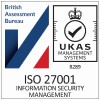There are always an unlucky few travellers who get sick when they go abroad. Recently however, a different kind of holiday virus is spreading: people pretending they got sick to defraud holiday companies of millions of pounds.
The good news, say our resident fraud and insurance experts, Jason Peto and Jason Claxton is that UK insurers can help prevent these fraudulent claims, using the same technology that will improve their customer service and reduce their costs.
Since 2014, the UK has experienced a 50-fold explosion in gastric illness claims. TUI, owner of First Choice and Thomson, say they’ve seen 15 times more sickness claims since Spring 2016, on previous years. While ABTA cites a 500% increase in the number of compensation claims for holiday sickness since 2013.
Nobody doubts that some of these claims are genuine. Yet it’s also clear that many are not. So what can be done to combat the epidemic of false claims that are proving so costly to tour operators, irritating to honest holiday-makers as their policy costs rise and damaging to the UK’s reputation abroad?
The sickening truth about travel claim fraud
This rise in fraudulent sickness claims is not totally the fault of the claimants. Claims management companies (CMCs or ambulance chasers, as they are also known) are aggressively pursuing people in person while they are still on holiday or by phone when they arrive home.
They use words like ‘entitlement’ and falsely claim that the travel industry or even the Government has a fund set aside specifically to compensate people who’ve fallen ill abroad. Unscrupulously, they will even coach claimants on what to say in order to maximise their pay outs – in other words, lie.
People are being persuaded that there are piles of money lying around waiting to be claimed by holiday makers just like them. After all, their case could be true. They could’ve got sick. But in many cases, they simply didn’t. And that is fraud.
What these ‘harmless’ claims mean for honest holiday makers and the travel industry
As the travel industry wakes up to what is really going on with bogus sickness claims, a backlash is happening. Holiday prices are on the up to mitigate future pay outs. Private investigators and journalists are monitoring resorts, particularly all-inclusive ones, naming and shaming fraudulent claimants.
Resorts are becoming so fed up that some are considering refusing British guests, because other nationalities are not guilty of making these claims. Some Spanish resorts are recording exactly what their guests are eating and it what quantities, so that they can counter any fraudulent claims if other guests have not fallen ill eating the same meals.
The problem with travel insurance claims is that the cost can get caught in a cyclical process as it is passed from party to party. Any claim can potentially involve the hotel, tour operator, ABTA, the travel insurer or even a credit card company, if they provided travel insurance services. This means a family claiming compensation for sickness from the hotel will often lead to the hotel then claiming compensation from another party through a legal loophole.
Another major problem is that historical data on travel claims is not available to insurers, making it hard to spot repeat opportunistic fraudsters who abuse the system over and over. Unfortunately, as usual with situations such as this, it is the innocent holiday makers who will ultimately pay the price if action is not taken to prevent fraudulent claims now.
What can insurers do?
The Government has opened new investigations into CMCs and holiday sickness claims, with the Claims Management Regulator (CMR) identifying over 30 unauthorised companies managing holiday sickness claims and taking action against them in 2017.
Insurers can also take their own measures to prevent fraud such as this. An industry-wide approach is best, with a united front that utilises technology already broadly used in the digitised claims process and data-driven business processes, offers the strongest, most effective option.
Creating a central claims database in the industry would quickly reveal the culprits – whether CMCs, rogue doctors or fraudulent claimants – their details showing up repeatedly, what they’ve claimed for, against whom and when. It would effectively throw all claims into the spotlight, meaning the fraudulent claimant will have nowhere to hide.
In addition, using software that can interrogate unstructured data – pdfs, emails, videos and so on – the sorts of document formats that will inevitably be used by say, a doctor to submit a sickness assessment, will be key for insurers to fully appreciate everything that is being submitted to support a claim.
The other critical element is how insurers capture the information from a claim. Digital solutions already exist that ensure the evidence supports the claim, through the claimant uploading imagery – text, video or photos – to include robust evidence such as the fact the claimant sought medical advice/diagnosis and the paperwork to go with this.
Sadly, we are all too aware of how aggressive CMCs are in their marketing to potential claimants and, as there are no fixed costs for Solicitors, as there are for motor claims, it is a profitable way for these companies to make money.
The industry is pushing for fixed fees and it’s easy to understand why. However, without a ‘unite and fight’ approach, the insurance industry stands to pay out more claims, in support of a compensation culture that’s out of its control. Yet, by using cost-efficient technology that is already reducing the claims lifecycle process and improving customer satisfaction, insurers can also help reduce fraudulent claims and cure this epidemic of fake travel sickness once and for all.
